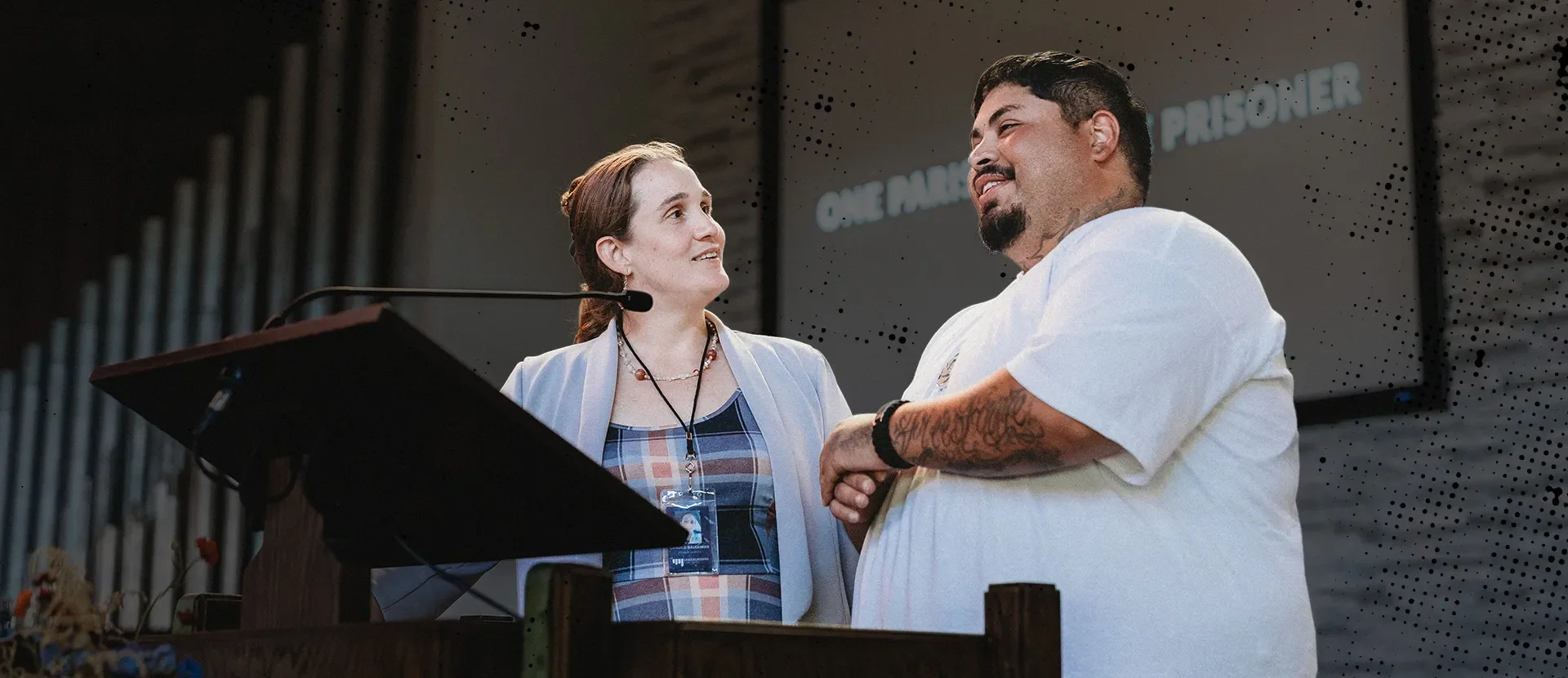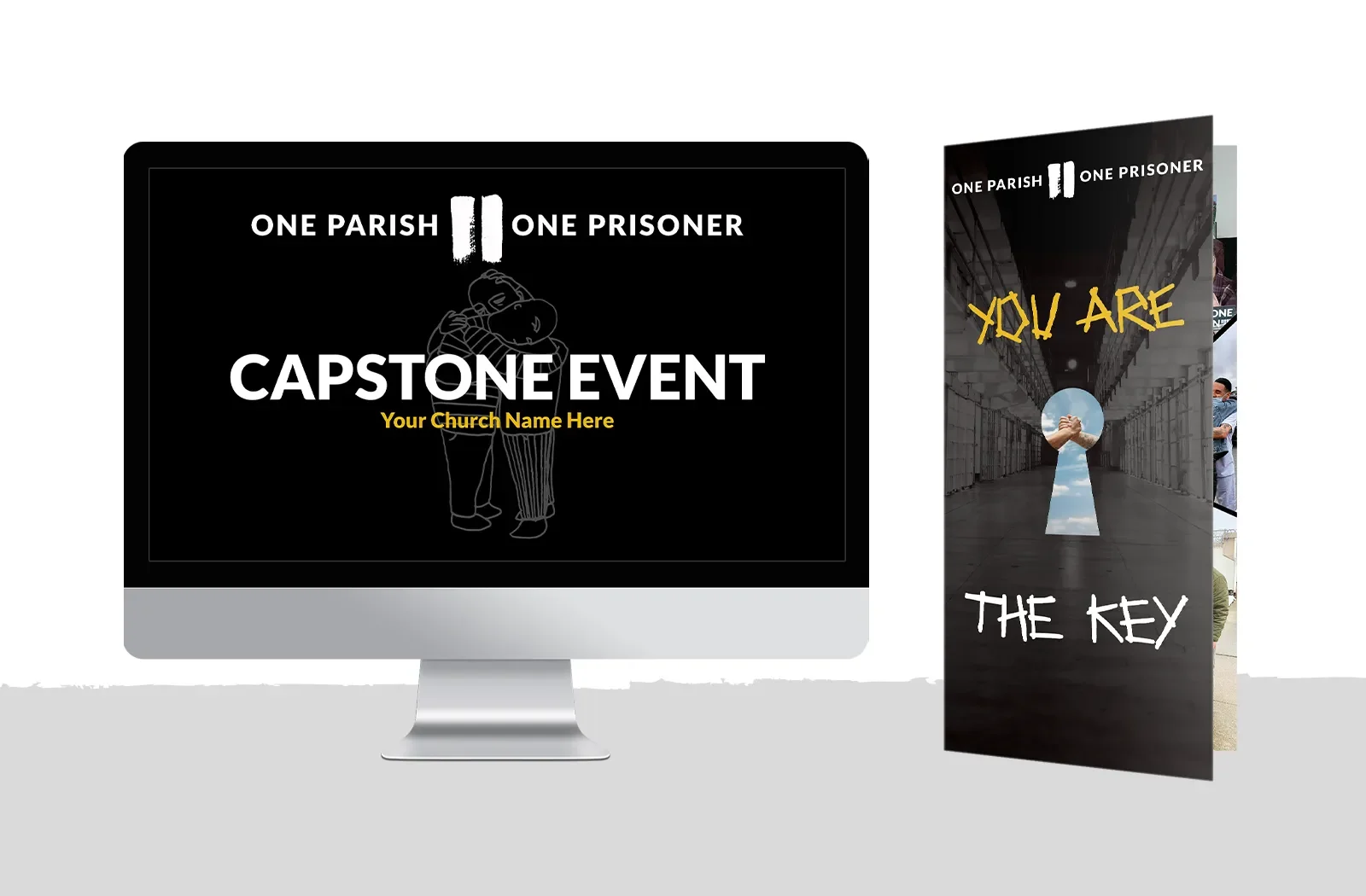
Let us bear witness to the ways you have approached the tombs of mass incarceration.
INTRODUCTION
You have faithfully gone through our learning curriculum, walked alongside your friend returning home, and built up communities of embrace, trust, and mutual transformation. We at OPOP revel in each and every one of you. Your stories of joy and heartbreak have been our joys and heartbreaks as well. We are so honored to be part of your journey.
As you have come to the end of the learning journey, we are wanting to help mark this momentous occasion. We have created a Capstone Project for you, your team, and your church to mark the ways you have grown, to share the stories of your faithfulness, and to lay the groundwork for the Spirit to move in new ways.
The Capstone Project is an opportunity to bear witness to the ways you have approached the tombs of mass incarceration, rolled away the stones of reentry, drew closer in relationship and trust as you removed the layers of death, and celebrated resurrection. As you reflect on this resurrection cycle, we invite you to ask:
Is this just the beginning?
Your Capstone Project is your chance to bring that question before your wider congregation—through a Worship Service and a Capstone Event.
KEY PIECES TO THE PROJECT
I. Worship Service
The Worship Service is where your whole church community is invited into this challenging journey with your team. It creates space to honor your OPOP team’s two-year commitment, connect the biblical story of resurrection with your lived story, and invite reflection.
During worship, you’ll:
Have your pastor or worship leader introduce the OPOP team and invite the congregation to your Capstone Event.
Share a brief reflection of your team’s journey with the congregation.
Invite the congregation to take the online Snapshot Spiritual Assessment (included as a bulletin insert).
This part of the project ensures your entire church body—not just those who attend the Capstone Event—has the opportunity to reflect, celebrate, and consider what resurrection might mean for your community.
II. Capstone Event
The Capstone Event is the second part: hosted by your OPOP team and provides the space to go deeper. It can take place directly after the Worship Service or on a separate date. This is your time to share authentic stories, reflect on what you’ve learned, and dream together about what might come next.
During the Capstone Event, you will:
Tell your story of resurrection using the Presentation Outline and Slideshow Template.
Invite attendees to participate in the Snapshot Spiritual Assessment if they didn’t during worship.
Facilitate a time of Q&A and conversation, helping your congregation connect personally with the journey and imagine their role in the larger resurrection movement.
This event is not only a milestone celebration—it’s also a catalyst. It invites your congregation to step more fully into the OPOP vision: practicing resurrection, embracing mutual transformation, and fueling the movement forward.
PUTTING IT ALL TOGETHER
We only know about the resurrection because a small group of disciples told the story. They weren’t preachers or salesmen, they just bore witness to what they saw at the tombs.
Think of the Capstone Project as this crucial step of bearing witness. You are celebrating the past two years of walking with your returning friend, while also inviting your church community into what this means.
Through worship, storytelling, reflection, and conversation, you’ll help your congregation see that what has happened with your team is not an ending but just the beginning.
QUICK QUESTIONS
CAPSTONE TOOLS & RESOURCES
Below is a digital copy of your Capstone Project Kit which was mailed to your team, plus additional resources to strengthen your Worship Service and Capstone Event.
FREQUENTLY ASKED QUESTIONS
-
Your mailed kit, also available online as a PDF, contains helpful resources to help you plan your Worship Service and Capstone Event.
Included:
Project Checklist - step-by-step reminders so nothing gets overlooked as you prepare
Presentation Outline - a flexible guide to help share your story during your Capstone Event
Worship Service Outline - resources for your pastor/ worship team to engage the wider congregation
Snapshot Spiritual Assessment - a tool for reflection, inviting congregants to notice how this journey has shaped them
“You Are the Key” Cards - an invitation for Capstone Event attendees to support the wider OPOP movement
-
The Slideshow Template is made in Google Slides and is meant to help your team tell your story of resurrection during the Capstone Event. It is the visual counterpart to the Presentation Outline found in the Capstone Project Kit. Make a copy of it and design it to tell your story.
-
The Snapshot Spiritual Assessment is a brief, anonymous, online tool for reflection that invites your congregation to notice how this OPOP journey has shaped them. It takes about 10 minutes (or less) to complete and can be accessed by scanning the QR code included in the bulletin insert from your mailed Capstone Project Kit. Your team’s unique QR code can also be found here and should be included in your Capstone Event presentation so attendees can participate as well.
-
Every church expresses worship differently, and we want this moment to feel authentic to your community. Some liturgy is more rigid, some are more flexible. But we believe this resurrection work is not a side charity, but central to our Christian story. We have seen even Catholic and Episcopalian leadership creatively integrate this work into the homily, scripture readings and announcements. Do what fits your community best. The heart of this moment is to integrate your present-day resurrection work and the ancient mysteries we proclaim.
-
Yes—if they’re willing and able, we wholeheartedly encourage it. Their presence and voice bring the story of resurrection to life. Invite them (and their family) to participate in whatever way feels most comfortable for them, whether that’s attending, sharing a reflection, or simply being celebrated as part of the journey.
Have more questions? We’re here for you!
Contact Dexter, Parish Mobilizer,
at dexter@undergroundministries.org.
ACTION STEPS
WORSHIP SERVICE & CAPSTONE EVENT: Confirm a date and time with church leadership for Worship Service and Capstone Event and please email Dexter at dexter@ undergroundministries.org with the dates and times so OPOP Staff can try to attend!
FINAL FACILITATOR’S REPORT: We will send you a link to your Final Facilitator’s Report after your Capstone Event.



